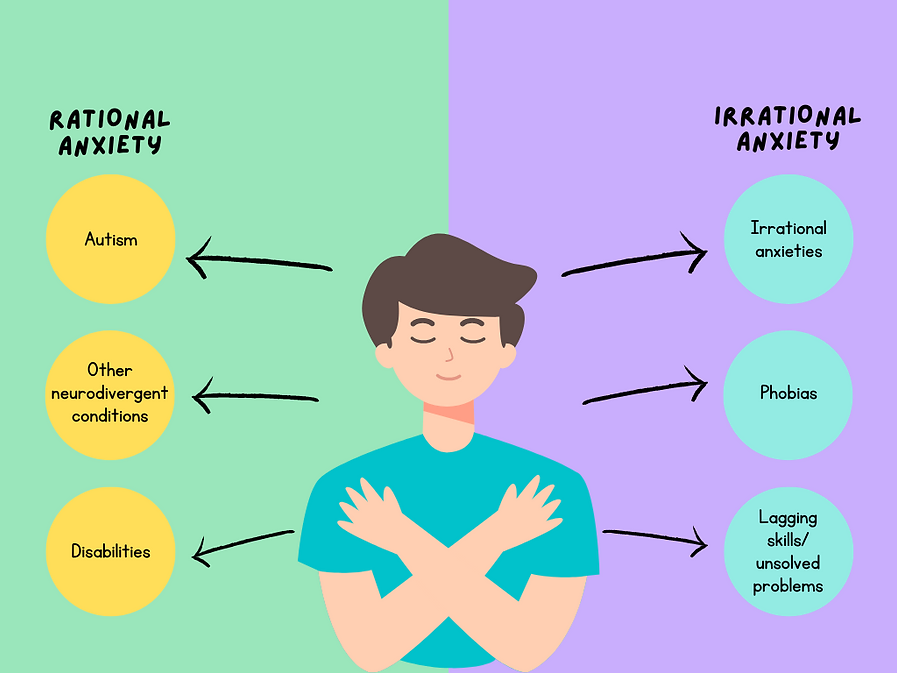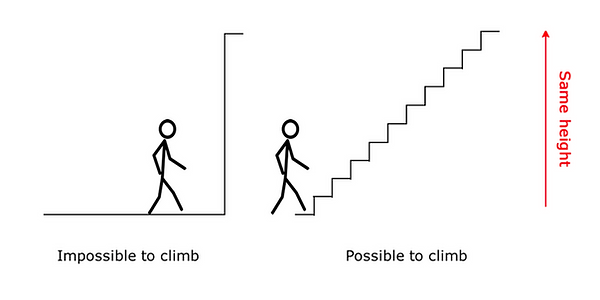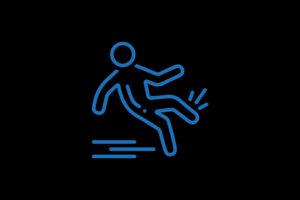Anxiety is a feeling of fear, panic or worry and is your brain’s way of trying to keep you healthy, safe and alive. Because anxiety can feel really awful, lots of people think that it is always a bad thing, but it can often be helpful if your brain is warning you about real danger and environments that are not good for you to be in. Everyone feels anxious sometimes, it’s a normal part of being human, but sometimes your brain might get it a bit wrong, or you may need to find ways to reduce and manage your feelings of anxiety so that you can do things that you really want to do.
There are two main types of anxiety; rational and irrational. It is important to understand which type of anxiety you are trying to reduce, as each type has different strategies which can help. This can sometimes be really tricky, as if you struggle with alexithymia you might not realise that you are anxious to begin with, or if you do, it might take you a while to figure out what is causing it.
Sometimes anxiety can also be linked to difficult past experiences. Trauma can make your brain more alert to danger than usual which can increase feelings of anxiety.

Rational Anxiety:
Rational anxiety is when you feel anxious because there is a real threat to your safety or wellbeing.
Being Autistic isn’t a reason for anxiety itself, but because you are autistic you might have sensory differences or different needs to non-autistic people. Feeling anxious about painful loud noises if you have sensitive hearing is understandable. Feeling anxious about heights because you have less awareness of where your body is in space, and therefore might fall, makes sense! These are rational anxieties because your brain is trying to protect you from the real threat of harm, pain and discomfort.
If you are struggling with rational anxiety then methods where you try and ‘get used to it’ wont work very well, if at all. It can sometimes even make you feel worse if you continually put yourself in a stressful environment or situation where your needs are not being met or you experience sensory overwhelm.
What can help with rational anxiety:
More understanding and acceptance. Taking time to understand yourself and what it is your brain is trying to protect you from can be really helpful. Accepting that your brain is doing its job of keeping you safe, even if the feeling is awful.
More support, or a better environment. What can you or other people do, or what can be changed about the situation or environment, to reduce your anxiety? If your anxiety is related to noises, will ear defenders help? If it’s caused by crowded corridors at school, can you leave lessons earlier to avoid them? If smells in the dining hall are really hard to cope with, do you even need to eat in there at all?
Irrational Anxiety:
Irrational anxiety is where your brain thinks there is a danger, but actually it’s getting a bit carried away and making the threat feel much bigger than it is.
Irrational anxiety will often try to stop you from doing things that you really want to do and it can make you focus on all of the ways that everything might go wrong! Therefore you might get irrational anxiety when you are trying new things, meeting new people, or you are feeling uncertain about plans. Lots of phobias are also irrational anxieties, for example being scared of spiders in the UK doesn’t make much sense, since most of our spiders are totally harmless!
When your brain detects a ‘threat’ it will go into survival mode, whether the threat makes logical sense or not. So even if you know your anxiety is irrational, the feeling of fear can still be really intense and overwhelming.
What can help irrational anxiety:
Know that there isn’t actually anything to be scared of. Firstly, make sure that the anxiety you are trying to reduce is actually irrational. You should feel worried if something scary is happening and it is normal to feel anxious in some situations.
The only way to overcome irrational anxiety is to challenge it and prove to your brain that it is wrong and there is nothing to worry about. However this is only possible if you want to overcome it and you also feel ready to.
Focusing on your goal can help you stay motivated – what is it you really wish you could do if you could get your anxiety to shut up? It can also be helpful to tell someone you trust that you are trying to overcome your anxiety, so they can help support and encourage you with your challenge.
Reduce triggers and overall anxiety. Throwing a spider at someone who has a phobia of them is not going to help them feel less scared! In the same way, if you are constantly being triggered by your anxiety then it is going to be really difficult to gradually help reduce it with small steps. If you are feeling ‘generally stressed out’ by other things going on in your life (e.g exams or moving house) then it might not be the best time to tackle your irrational anxiety, as even a tiny step might feel really huge and overwhelming.
Take small steps towards challenging the anxiety. It is important to do this at your own pace, not just because someone else says you should. Overcoming anxiety can be really difficult and takes a lot of hard work and time, but it is worth it if it means you get to do the things you really want to do.

What are some common reasons for anxiety in autistic people?
Fear of the unknown
It is common for autistic people to like to feel prepared and in control, so a new experience or surprise can sometimes feel scary if you don’t fully know what to expect. Sometimes our brains can start to imagine the worst possibilities, so we become scared of the new experience.
TOP TIP: If this is something you experience, it is good to share this information with people who care for you, so they can help you feel more prepared.
Maybe you could look at photos or videos before visiting somewhere new, or agree to plan together what you will be doing. Research, look at Street View and the venue’s website.
TOP TIP: Create a Plan B, this is used in case something doesn’t go as expected on your first plan and you need to have a back up idea. Having the back up plan will offer you security and a sense of safety. It means you don’t have to find a solution on the spot, during an anxious time.
Can you ask staff to share information about themselves? They could make a One Page Profile or a video to introduce themselves. You might be asked to help make a One Page Profile for school, but can you ask teachers to make one for you? Here is an example: https://andysg.carrd.co/
Sensory overwhelm
As we experience the world differently to non autistic people; some environments can feel unsafe and cause the feeling of anxiety. These are often busy places where there is lots of noise, smells and bright lights. Or if you are someone who needs lots of movement, then a place where you have to stay still for long periods can also cause these feelings. Although there is no wild bear or tiger roaming the room, we need to listen to our feelings of anxiety because it is the brain’s way of telling us that the environment is not right or safe for us.
TOP TIP: talk to people about changes that could be made to the environment or whether there is somewhere better for you to go, maybe a quieter space to chill out.
If you don’t know what you need, chat with your trusted person and work with them to create a solution together.
TOP TIP: Can you bring things with you to make the environment less distressing? For example wearing headphones if it is too loud, sunglasses if it is too bright or fidget toys if you need something to focus on.
Past experiences
If you’ve been somewhere or done something before and not had a nice experience, you might relive what happened and feel anxious just thinking about returning. This is also our brain trying to protect us from harm. This is a completely natural response and it can be difficult but you can overcome it with the right support.
TOP TIP: Talk to trusted people about ways we can prevent another negative experience. Create an escape plan together so if you are feeling ‘not good’ you can leave. This could be a text message, a hand sign or a word agreed by both of you.
Phobias
Sometimes our brains can just get it wrong and make us think that something is dangerous when the truth is that we aren’t at risk of any real harm. People can have allsorts of fears, but a very common one is spiders. In the UK spiders are quite harmless creatures, but for some people their brains send the same messages around their bodies as if they had met with a tiger.
TOP TIP: It is possible to teach our brains to not react with anxiety to things that aren’t dangerous, so if you have a phobia that is making you anxious and you would like to overcome it, you should speak to the people who care for you or your doctor about ways of getting help to do this. Overcoming a phobia is a big challenge, so if you decide to do this, it is really important that you are in control of what happens and that you can move at your own pace.
You can read more about anxiety on the Barriers to Education website.
Writing led by Kirstie McStay, Autistic Parent, Under 13 Community Manager at Spectrum Gaming
Anxiety Escape Room
My anxiety is a puzzle that I continually need to solve; each time I become dysregulated it feels like I am being beamed or teleported into an escape room by myself. With every knew anxiety attack, the themes or puzzles are different, but the overall concept is the same. I am alone, inside a room of my anxiety’s own creation with clues and puzzles to solve to find my way out. But my fear begins to grow, the room becomes a maze and I know I cannot go backwards, the only way is through. I try and remember the solutions I have used before, but the combinations to the locks are always changing; I need time to adapt the tools I have in the room. I can hear the adult outside, wishing they could be with me; but they don’t know how it feels in this escape room and if they were with me, then I wouldn’t be locked inside. Only I can free myself and I know it’s never easy, but it is the only option. As I struggle to work out what to do, my anxiety begins to rise and blocks my processing, so I forget all the answers I’ve used before. The adult cannot see the problem I am faced with but keeps shouting clues to figure it out and together we adapt how I approach the puzzle. I work through each task and my anxiety starts to fall; as I complete the final code I see the adult waiting on the other side of the door ready to let me out.



